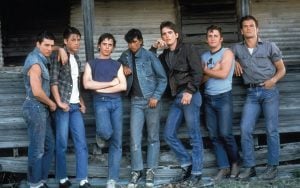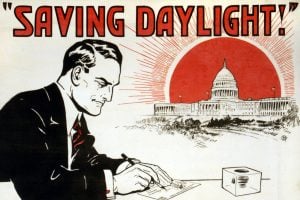Slave auctions and private sale ads — straight from original source material
Although books and articles on the topic can provide a wealth of important insights, actually seeing the ads that were placed in the newspapers of the era, where human beings were treated as simple merchandise at slave markets cannot help but force us to think hard about the way things were… and how they must never be again.
“What, am I to argue that it is wrong to make men brutes, to rob them of their liberty, to work them without wages, to keep them ignorant of their relations to their fellow men, to beat them with sticks, to flay their flesh with the lash, to load their limbs with irons, to hunt them with dogs, to sell them at auction, to sunder their families, to knock out their teeth, to burn their flesh, to starve them into obedience and submission to their masters?
“Must I argue that a system thus marked with blood and stained with pollution is wrong? No! I will not. I have better employments for my time and strength than such arguments would imply.

“What, then, remains to be argued? Is it that slavery is not divine; that God did not establish it; that our doctors of divinity are mistaken? There is blasphemy in the thought. That which is inhuman, cannot be divine! Who can reason on such a proposition? They that can, may; I cannot. The time for such argument is past.
“At a time like this, scorching irony, not convincing argument, is needed. O! had I the ability, and could I reach the nation’s ear, I would, to-day, pour out a fiery stream of biting ridicule, blasting reproach, withering sarcasm, and stern rebuke. For it is not light that is needed, but fire; it is not the gentle shower, but thunder.
“We need the storm, the whirlwind, and the earthquake. The feeling of the nation must be quickened; the conscience of the nation must be roused; the propriety of the nation must be startled; the hypocrisy of the nation must be exposed; and its crimes against God and man must be proclaimed and denounced.
– Frederick Douglass, from his speech entitled “What, To The Slave, Is The Fourth Of July,” presented in Rochester, New York, on July 5, 1852

Note: The term “likely” is frequently used in the advertisements shown below. At the time of publication, the term probably meant something along the lines of “having the appearance of being strong and capable,” or “That may be liked; that may please; handsome,” as suggested here.
Slave trade: Servant men and boys to be sold for cash or bread
Pennsylvania Gazette (December 1729)
Just imported in the ship Boneta, Capt. Thomas Reed, Master, from London (lying near the Market Wharf) a parcel of likely Servant Men and Boys, of sundry Trades, as well as Husbandsman: to be sold by Edward Horne and William Rawle, very reasonable (also good Newcastle Coal) for Cash, Flower [flour] or Bread.

Slave market: Woman for sale
Pennsylvania Gazette (April 1730)
A likely Negroe Woman to be Sold. Enquire at the Widow Read’s in Market-Street, Philadelphia.

Woman to be disposed of
Pennsylvania Gazette (August 1730)
A Likely Negro Woman, fit for all kind of household business, to be disposed of. Enquire of the Printer hereof.

A 20-year-old baker to be sold
Pennsylvania Gazette (October 1747)
To be SOLD: A likely young Negroe lad, about twenty years of age, a baker by trade. Enquire at the Printer hereof.

MORE: Martin Luther King Jr’s ‘I have a dream’ speech (1963)
A parcel of men, women, boys and girls
Pennsylvania Gazette (June 1751)
To be sold by NATHAN DURANT, at Capt. Morrell’s on Society-hill, a parcel of likely Negroes, men, woman, boys and girls. Some of them have had the small-pox.

Slaves, household goods and cattle to be sold
Virginia Gazette (September 1751)
To be SOLD on the first Monday in October, a large number of Negroe Slaves, likewise sundry Household Goods, Stocks of Cattle, etc. – Thomas Eldridge

Cargo of choice healthy slaves
Virginia Gazette (July 1752)
Just arrived in James River from Old Callabar, the Anne Galley, Capt. Alexander Robe, with a cargo of choice healthy slaves, the sale of which will begin at Bermuda hundred on Thursday the 16th of this instant, and there be continued ’til all are sold. – John Ruffin and Son

Old slavery ads: Hammers and a man to be sold
Pennsylvania Gazette (October 1754)
To be sold: Colebrookdale Forge-Hammers. Also a likely Negroe-man, about 20 years of age. Enquire of Thomas Yorke.

Sober and honest woman and child, and a healthy woman
Pennsylvania Gazette (September 1761)
To be sold: A likely young negroe wench, about 26 years of age, with or without her child, a girl, about five years old; both have had the small-pox, and been in the country upwards of two years; the Wench is fit for house business, and can be recommended for her sobriety and honesty. Whoever is inclinable to purchase may treat with me at the Crown, Ring and Parrot, in Front Street, next to Messrs. Taylor and Cox’s store. – Samuel Alford
To be sold: A likely healthy Negroe wench, 18 years of age, has had the Small-Pox, and speaks good English. Enquire of John Hall, in Front-street, between Race and Vine-streets.

MORE: Martin Luther King Jr’s assassination: The shooting & aftermath of Dr King’s death (1968)
A woman and her baby son for sale
Pennsylvania Gazette (August 1762)
To be sold by the Subscriber, at the Golden Fleece, below the Drawbridge, a likely Negroe Wench, about 25 years of age, with a Male Child, six weeks old, fit for Town or Country Business. – James Byrne

Slaves for sale: Pregnant woman who has had smallpox
Pennsylvania Gazette (March 1763)
To be sold: A likely Negroe Wench, about Twenty Years of Age, has had the Small-pox and Measles, can well be recommended for her Honesty, is young with Child. Enqure of Emanuel Josiah, facing the Coffee-house.

Selling a woman because she’s pregnant – very inconvenient
Pennsylvania Gazette (October 1763)
To be disposed of, a likely, healthy Negro Wench, about 21 years of age, has had the small-pox, fit for Town or Country business; she is sold because she is with Child which will be very inconvenient for the Family she is now in. Enquire of the Printers.

Negroes to be sold for ready money
Virginia Gazette (June 1768)
Taken by executions, etc. and to be SOLD to the best bidders, on the 18th of July, at Elizabeth City court-house door, being court day, Ten or twelve likely NEGROES, men women and children for ready money by the SHERIFF.

Slaves for sale: 50 negroes to be sold
Virginia Gazette (March 1769)
To be SOLD, on Monday the 30th of this instant (March) at the late dwelling-house of Mrs. Mildred Willis, deceased, in Brunswick county, About fifty likely NEGROES, among which are some tradesmen, viz. two carpenters, a very fine man cook, and several good spinners; also the whole flock of horses, mules, cattle, sheep and hogs, all the household furniture, a good coach with new harness, a single chair, and many other things too tedious to mention. Twelve months credit will be allowed for all sums above 5 l. the purchasers giving bond and security to John Willis, Francis Willis, Augustine Willis, Executors. N.B. The sale to be continued until all are sold.

MORE: Alex Haley’s ‘Roots’ came to life in 1977, and TV would never be the same
Slave auction: 240 choice slaves
Virginia Gazette (August 1770)
Just arrived from Africa, 240 choice SLAVES, in the snow Yanimarew, Thomas Atkinson master; the sale of which will begin at Bermuda Hundred on Thursday the 30th inst. and continue until all are sold. — Merchants notes, and orders, will be received. – Carter & Trent

Slave auction: Just arrived from Africa
Virginia Gazette (August 1770)
Just arrived from Africa, 200 choice SLAVES, in the brig Aston, John Clifton commander; the sale of which will begin at Bermuda Hundred, on Thursday the 20th of September, and continue until all are sold. – John Lawrence, William Call & Co. N.B. Merchants notes will be received in payment.

ALSO SEE: Fighting for the Union: 20 African American soldiers from the Civil War
Slaves for sale: Mother and baby to be sold
Maryland Gazette (July 1787)
TO BE SOLD: A healthy young Negro Wench, with a Male Child in arms. Inquire of the Printers.

Slaves for sale: 8 negroes for sale – credit available
North Carolina Gazette (November 1793)
On Wednesday, the twentieth of November next, will be sold at public venue at Clear-Springs, twelve miles above Newbern; eight NEGROES, belonging to the estate of James Green, senior, deceased, at six months credit. The purchasers to give notes with approved security before the property is altered to John Green, Ex’r.

A young fellow for sale
North Carolina Gazette (March 1797)
FOR SALE, A likely young Negro Fellow.

Housekeeper and child
North Carolina Gazette (March 1797)
FOR PRIVATE SALE. A Negro wench and child. The wench is a complete cook, washer and ironer. Apply to Thomas Fitzgerald.

Slave trade: Several women with their children, ages 3-12
Maryland Gazette (November 1800)
Negroes for sale. Several negro women, with their children, consisting of boys and girls, from three to twelve years old, to be sold in families. Inquire of the subscriber, near Pig Point, Anne Arundel country. – Samuel Harrison

MORE: About Harriet Tubman: Rebel, slave activist, Union spy
Public sale at slave market: Will be sold to the highest bidder with cash in hand (1836)
Image courtesy Smithsonian Museum

Broadside for “Administrator’s Sale of Negroes” (1849-1850)
ADMINISTRATOR’S SALE OF NEGROES!! The undersigned will, on the first day of January, 1850, offer for sale, to the highest bidder, at Flint Hill, in the county of St. Charles, a negro woman and child, and two likely boys from five to eight, belonging to the estate of Joseph McCoy, dec’d to be sold in obedience to an order of the County Court of St. Charles, made at the November term 1849.
TERMS.–Twelve months credit, the purchaser giving bond with approved security. A. Broadhead, adm’r. of Joseph McCoy, dec’d. Nov. 28, 1849. Image courtesy Smithsonian Museum.

Slave auction: Tennessee slaves for sale (1857)

Estate sale: 10 enslaved people for sale (1862)
This broadside advertises the estate of recently deceased Robert Skeen, owner of the Eagle Hotel and a farmer in Covington, Virginia. Included in the sale lots are ten enslaved people, “4 NEGRO MEN, 2 WOMEN, 2 BOYS & 2 GIRLS.” Image courtesy Smithsonian Museum.

Slave market: Great Negro Mart (1859-1860)
No. 87, ADAMS STREET, / MEMPHIS, — TENN. / The undersigned would announce to the community at large, that they will keep/constantly on hand a/ GENERAL ASSORTMENT OF NEGROES/ AT PRIVATE SALE AND AT AUCTION. / They will also receive on commission (to Board or for Sale) any Negroes consigned/to their care. / All sales warranted as represented. / HILL, WARE & CHRISP

ALSO SEE THIS: The Kerner Report, a groundbreaking 1968 study of racism in America, was ignored by the president who ordered it




















One Response
Heartbreaking. :(